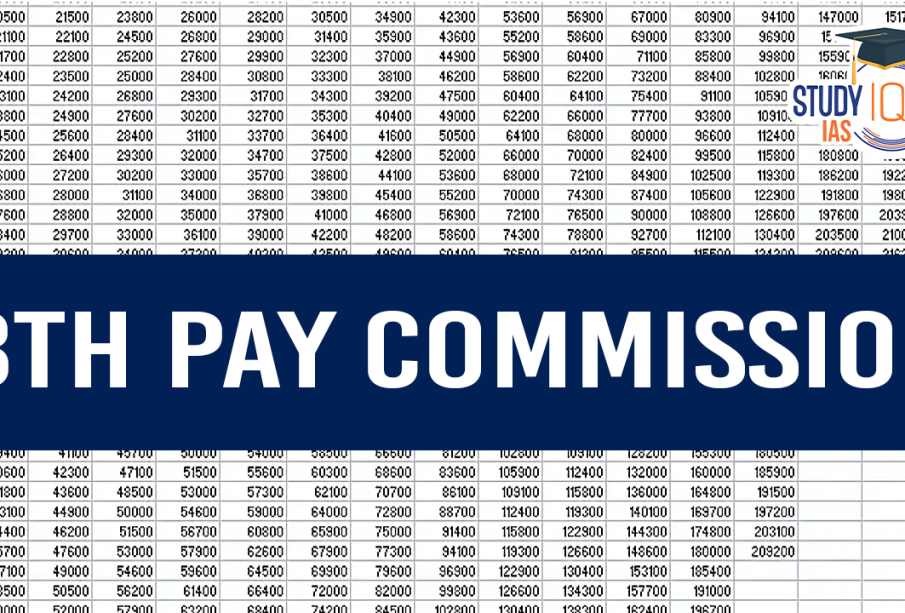Anticipating the 8th Pay Commission for Government Employees

Introduction
The 8th Pay Commission for government employees is becoming a critical topic in India as discussions evolve around enhancing the salaries and allowances for millions of workers in the public sector. With previous pay commissions having a profound impact on government employee compensation, the 8th Pay Commission is particularly significant amid rising inflation and demands for better wage structures. Understanding the implications and potential outcomes of this commission is vital for government employees and their families.
Current Status of Pay Commissions
The last significant adjustment to government employees’ pay came in 2016 with the implementation of the 7th Pay Commission. This commission revised salaries based on recommendations that provided for significant pay hikes. However, as inflation rates have continued to rise over the past few years, there is an emerging consensus that another revision is necessary to ensure government employees can maintain their standard of living.
Demands for the 8th Pay Commission
Government employees and their unions are actively advocating for the establishment of the 8th Pay Commission. Major concerns being raised include inadequate salary adjustments compared to private sector workers, rising living costs, and the overall economic impact of inflation. Numerous protests and movements have been organized to garner attention from policymakers on this pressing issue. Union leaders have emphasized that the commission should not only focus on salary increments but also ensure better allowances and benefits for employees.
Government’s Response
While the government has acknowledged the demand for a new pay commission, it has remained cautious in making announcements. Discussions have taken place regarding the feasibility of implementing a new commission, especially in the context of the current economic challenges faced by the country due to global events. Recently, finance officials hinted at a potential review of pay structures and adjustments in the coming budgetary proposals, which would provide guidance for setting up a new pay commission.
Conclusion
The establishment of the 8th Pay Commission for government employees is of utmost significance as it could substantially alter the financial landscape for the public service sector. As the government contemplates the needs of its employees against the backdrop of an evolving economy, the coming months will be crucial. If established, the recommendations from the 8th Pay Commission could lead to improved financial conditions for many families associated with the government sector, fostering increased productivity and morale. The collective anticipation of government employees for this commission reflects broader concerns about salary injustice and economic refinement in India.









